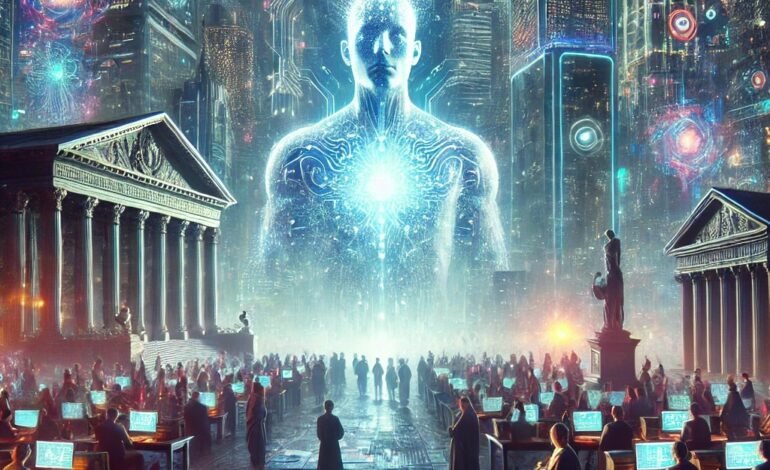The AI Age: The End of Intellectual Hierarchies

- PublishedMarch 10, 2025
Basil Odilim
In my lifetime, I saw how only a few families had cars, but now almost every family owns one. I saw how only a very tiny group had access to education, especially university education, but today, it is virtually available to all citizens.
Roads once narrow have expanded into highways with ten lanes, and journeys of 500 km that once took days can now be completed in less than three hours. There were only four airports; now, they are innumerable. Sleepy villages across the country have grown into cities, with beautiful mansions like those shown in American movies in the 1980s.
But the most unbelievable transformation is in communication—where today, everyone owns a functional mobile phone, making seamless calls, sharing messages and videos, and even making video calls. Many Nigerians today own private jets, with my hometown, Ihiala, having the largest number of private jet owners in the country.
Today, traveling abroad has allowed even families that were once the poorest to catch up with—if not surpass—the families that were once rich.
All of these changes happened within my 64 years on Earth, yet they unfolded so gradually that one day, we simply woke up to realize that the old ways had been replaced.
However, there is something happening now—something unprecedented in human history—that is approaching faster than we realize, if it is not already here. For millennia, intelligence—whether measured by IQ, education, or expertise—has been a primary determinant of success, power, and social status. Those with superior cognitive abilities had access to better opportunities, accumulated wealth, and shaped society.
However, the rise of artificial intelligence is rapidly dismantling this advantage. In the AI age, personal intelligence is no longer the defining asset it once was. AI systems now outperform even the brightest human minds in complex cognitive tasks, rendering traditional intellectual hierarchies obsolete.
Historically, inequality stemmed from disparities in knowledge, social status, and geographical advantage. The elite controlled education, technology, and specialized skills, leveraging them to dominate economic and political systems. But AI is upending this structure. Today, AI can analyze legal documents, design intricate engineering solutions, and generate creative works—all with a level of precision that no individual can match.
As a result, high IQ or specialized expertise will no longer provide a competitive edge. AI-powered tools are democratizing access to knowledge and skills, ensuring that anyone, regardless of cognitive ability, can harness them.
I remember spending months just three years ago in my effort to assemble the mathematical theories, particularly complex geometric mathematics, needed in building some of the complex algorithms for one of my inventions. But today—and recently—within days, I unbelievably had it done. That’s what reduced the time spent on my newest patented invention to just weeks rather than months of intense mental work, where all the algorithms were developed concurrently within a week.
So, whether you have an IQ of 180 and I have only 80, you and I, having equal access to AI-driven intelligence, will enjoy the kind of level playing field in ways previously unimaginable.
The implications of this shift are profound. It challenges the long-standing notion that intelligence and experience are the primary drivers of success.
More importantly, it forces society to rethink the very concept of human value—if AI can perform the tasks once reserved for the most brilliant minds, what will define human worth in the future?
Yet, this transformation presents extraordinary opportunities. It offers the potential for a world where success is no longer dictated by genetic predisposition or elite education. Instead, all individuals—regardless of background or intellectual ability—will have access to the same powerful tools to create, innovate, thrive, and achieve AI-driven justice. Even moral differences, as the only differentiator in our individual behaviors, will be closed since there will be no more hiding places for the wicked, who will easily be exposed by AI too.
The AI age is not just an economic revolution; it is the great equalizer, dissolving intelligence-based privilege and paving the way for a society where knowledge and opportunity are universally accessible.








